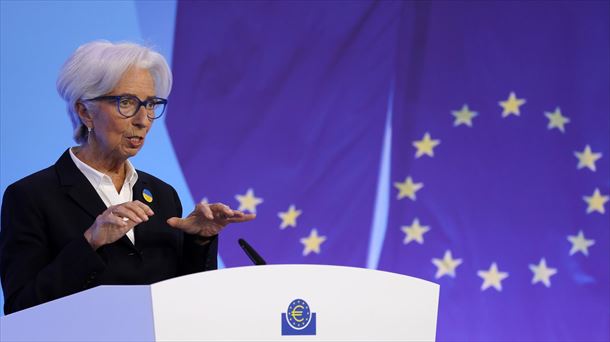Ukraine’s four pro-Russian territories continue illegal talks over their annexation to Russia
Moscow replaced its chief of logistics on Saturday after a series of setbacks in its offensive in Ukraine, while in the Kremlin-controlled eastern and southern regions, referenda over its annexation to Russia continued, a qualified “farce” by Kiev and its western allies. .
The change in the General Staff comes amid a major military mobilization campaign in Russia and logistical difficulties in the conflict, in which Kiev is increasingly regaining ground.
In that sense, Russian President Vladimir Putin signed a law on Saturday that will tighten penalties for crimes committed in times of military mobilization and will punish voluntary surrender, refusal to fight or desertion with up to 10 years in prison.
“General Dmitri Bulgakov has been relieved of his duties as deputy defense minister” and will be replaced by Colonel General Mikhail Mizintsev, 60, the defense ministry reported.
The partial mobilization announced by Putin on Wednesday is likely to be one of his first major logistical challenges, as the hundreds of thousands of recalled reservists must be equipped and trained before being deployed.
The vote on whether Russia should annex four regions of Ukraine began on Friday, seven months after the invasion by Moscow’s troops. “The Russian referendums are a sham, a false pretext to try to annex parts of Ukraine by force, in flagrant violation of international law,” US President Joe Biden said.
The votes even provoked a response from China, with Foreign Minister Wang Yi telling his Ukrainian counterpart Dmytro Kuleba that “the sovereignty and territorial integrity of all countries must be respected”.
Referendums are held in the Russian-controlled areas of Donetsk and Lugansk in the east, and Kherson and Zaporizhia in the south.
Authorities will be going door-to-door for four days to collect votes, and polling stations will open on Tuesday, allowing residents to vote on the last day.
“In the end, things are moving towards the recovery of the Soviet Union. The referendum is a step in that direction,” Leonid, a 59-year-old soldier, told AFP.
The annexation of the four regions into Russia would escalate the conflict, as Moscow would view any military movement there as an attack on its own territory.
The referendums were announced this week after a Ukrainian counter-offensive recaptured most of the northeastern region of Kharkov and returned control of hundreds of cities to Kiev after months of Russian occupation.
On Friday, the G7 countries confirmed that the elections will “never” be recognized and that they have “no legal effect or legitimacy”.
In turn, UN investigators on Friday accused Russia of committing war crimes in Ukraine, citing bombings, executions, torture and sexual violence.
Erik Mose, the chair of the Commission of Inquiry – a team set up by the Security Council in March – said they had seen evidence of a “large number of executions”, as well as rape and torture of children.
In the Kharkov region, Ukrainian authorities announced Friday the exhumation of 447 bodies from a forest near the city of Izium, which were recently recaptured from the Russians.
“Most of them show signs of violent death and 30 show signs of torture,” said Oleg Synegubov, Kharkov’s regional governor.
Kremlin accuses Kiev of fabricating evidence of alleged war crimes.
Putin this week assured that he would protect Russian territory by “all means”, while the former president and current number two of the country’s Security Council, Dmitry Medvedev, pointed out that this would even involve the use of “strategic nuclear weapons”.
Moscow began the mandatory conscription on Thursday, but many men also left Russia en masse before being forced to enlist.
Some, however, could not avoid the call, such as Mijail Suetin, 29, who was arrested in Moscow in protest against the mobilization and shortly afterwards ordered to go to the front. “I expected the usual procedures: the arrest, the police station, the court (…) But let them tell me: ‘Tomorrow you are going to war, (…) that was a surprise,'” he says. .
Source: La Verdad
I am an experienced and passionate journalist with a strong track record in news website reporting. I specialize in technology coverage, breaking stories on the latest developments and trends from around the world. Working for Today Times Live has given me the opportunity to write thought-provoking pieces that have caught the attention of many readers.



